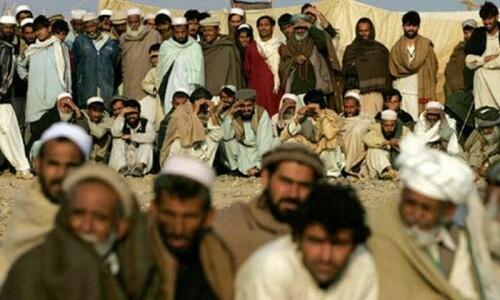No military solution to Afghan conflict, agree Pakistan and Turkey

Foreign Minister Khawaja Muhammad Asif met with Turkish leadership in Ankara on Tuesday as part of his tour to regional powers in the aftermath of the United States' new policy announcement on Afghanistan and South Asia.
Asif, in meetings with Turkish President Recip Tayyep Erdogan, Prime Minister Benali Yildirim and Foreign Minister Mevlüt Çavuşoğlu, discussed relations between the two nations and "mutual coordination on regional peace, security and connectivity," a statement released by the Foreign Office said.
Asif "reaffirmed Pakistan’s strong desire for further strengthening strategic partnership between the two countries through increased cooperation in political, economic, defence and people-to-people ties" in his meeting with Erdogan, the FO said.
"Erdogan reiterated Turkey’s unflinching commitment to broaden and expand brotherly relations between the two countries," the statement said.
The two leaders asserted that "lasting peace in Afghanistan was important for stability in the region" and vowed to continue working together "for peace and stability in Afghanistan".
Asif and the Turkish prime minister in their meeting "recalled the important work done under the High0-Level Strategic Cooperation Council (HLSCC)," and resolved "to take measures to impart further impetus to this bilateral strategic forum."

Both countries' foreign ministers agreed that there is no military solution to the conflict in Afghanistan, and stressed the need for regional powers to work for an Afghan-led and Afghan-owned peace process, the FO said.
Asif "thanked Turkey for its principled support to the just struggle of the Kashmiri people for their right to self-determination," the FO handout read.
The leaders also shared deep concern for the atrocities committed against Rohingya Muslims in Myanmar.
Asif paid visits to China and Iran prior to his arrival in Turkey, with the focus on the need for a political solution to the Afghan problem.
















































